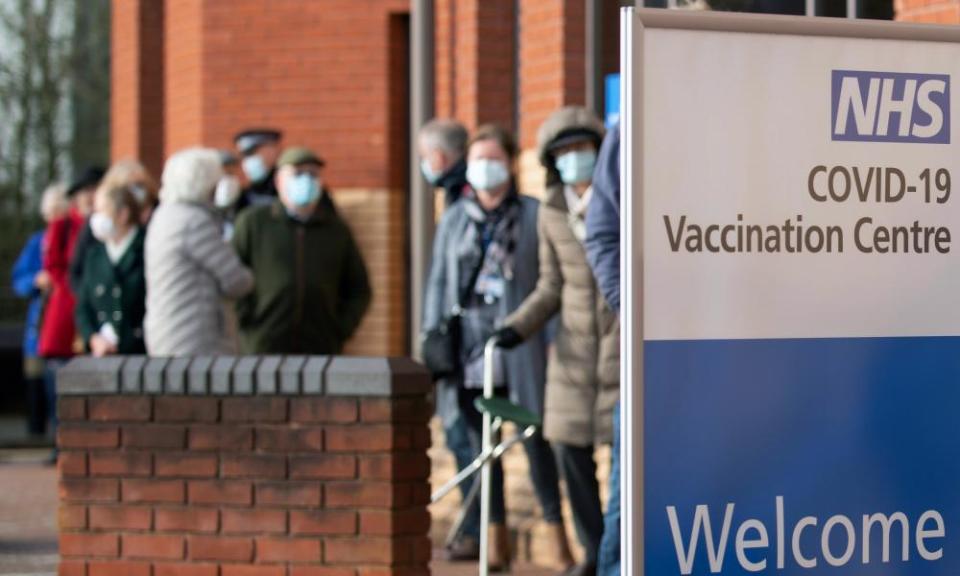One in eight people had Covid antibodies in England in December

About one in eight people in the community in England would have been expected to test positive for coronavirus antibodies in December, data suggests, revealing the majority of the population are still at risk from Covid-19.
According to antibody data collected by the Office for National Statistics as part of its coronavirus infection survey, an estimated 12.1% of people in England aged 16 or over – about 5.4 million people – would have tested positive for antibodies in December.
By contrast, the figure was 8.9% in November and 7% in October, suggesting a rise in people who have been infected – a situation mirrored by other data including the number of people testing positive during those months.
“The estimates suggest there has been an increase in antibody positivity in the most recent month,” the team write.
default
The ONS data also reveals large variations around the country: 16.8% of the population aged 16 or over in Yorkshire and the Humber would have tested positive for antibodies in December, overtaking London at 16.4%. However, the figure is estimated to be just 4.9% for people in south-west England.
The uptick in the percentage of people testing positive for antibodies was also seen in other UK countries. The ONS estimated that in December, 8.9% of people in Scotland, 7.8% in Northern Ireland and 9.8% in Wales would have Covid antibodies, up from 6.5%, 3.5% and 5.4% respectively the month before.
However, the researchers cautioned that fewer people in the survey tested positive for antibodies in those nations compared with England, so there is more uncertainty in the figures.
They stressed the data only referred to the situation in the community: hospitals, care homes and other institutional settings were not included in the survey.
While the survey suggests the proportion of people who have had an infection has risen over the past few months, the data has limitations.
default
As the researchers note, it takes about two to three weeks for the body to churn out enough antibodies to fight the infection. That means the data only sheds light on past infections. In addition, while having antibodies can offer protection against reinfection, it is not yet known what levels are needed to reduce the chance of getting Covid again. Antibody levels also decline over time.
“We measure the presence of antibodies to understand who has had coronavirus in the past, although the length of time antibodies remain at detectable levels in the blood is not fully known,” the researchers noted.
Prof Danny Altmann, an immunologist at Imperial College London, who was not involved in the survey, said the data provided a snapshot in time.
“This is a dynamic picture: many who were infected during the March-April peak may no longer appear positive on this test,” he said, adding that testing positive for antibodies does not necessarily mean an individual is protected from reinfection.
And while the percentage of people expected to test positive for antibodies to the coronavirus has risen slightly, Altmann said it was not rising quickly, meaning natural herd immunity had not developed and that vaccines remained crucial to tackling the disease.
He added that other questions remained, including how a past infection might influence an individual’s response to a Covid vaccine : “[The] jury is still out on whether these immune people will make an enhanced response to the vaccine,” he said.

 Yahoo Finance
Yahoo Finance 